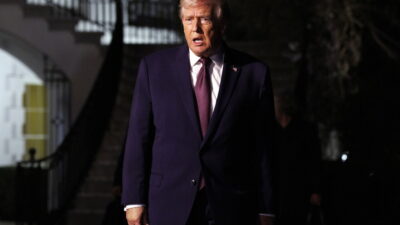Nefeli Lygerou: The “irreplaceable” ambassador Apostolidis – The Greek negotiator in the exploratory talks
08/10/2020
The table of “dialogue” with Turkey was set by many. However, only one man will sit at this table! To be precise, a man representing Greece. Ambassador Pavlos Apostolidis will sit opposite the Turkish ambassador Çağatay Erciyes. Although the diplomatic trenches of the Greek-Turkish talks may not consist of moats and ramparts, there may be no mud and cold, negotiations with the Turkish side have proven to be very difficult.
The mission of Ambassador Apostolidis, therefore, is difficult. As the old adage, sometimes attributed to Winston Churchill, says: “You cannot reason with a tiger when your head is in its mouth”. And Turkey is claiming the role of the tiger for itself, threatening to use military force, as it has done in the past while creating a political fait accompli. That is why it is useful for Ambassador Apostolidis to remember another motto by Theodore Roosevelt. “Speak softly and carry a big stick; you will go far.”
His friends say that during his many years of travel, the honorary ambassador and former commander of the Greek intelligence agency EYP has proved that he knows how to balance things. This is not the first time, after all, that he will face the Turkish side, as head of the Greek delegation in the so-called exploratory contacts. His previous service in top diplomatic posts and his participation in negotiations have undoubtedly endowed him with great experience. This, however, is a necessary but not a sufficient condition. Conditions also required concern both his own point of view and mainly the choices of the Mitsotakis government that chose him.
Apostolidis is a native Athenian. He first saw the Mediterranean sun in 1942, under German occupation. He came to adulthood following post-war events, although he came from a very privileged family in an urban environment. He studied law and immediately joined the diplomatic service. He was only 23 years old.
From Cyprus to the EU
In an earlier interview, he had agreed with the journalist’s report that out of the 500 diplomats, only a hundred shoulder the burden. He considers that he belongs to the latter. Many of his colleagues may find it controversial that he has the syndrome of attaching crucial importance to what his powerful allies and partners say, but they also admit that he works hard.
He was, after all, ambitious from the beginning and he could not wait to distinguish himself. During the dramatic period of 1973-1976, he served in the Greek embassy in Cyprus as first secretary. Thus he found himself at the center of the great national tragedy that was triggered by the junta coup of July 15, 1974, paving the way for the Turkish invasion with all the dramatic consequences for Cypriot Hellenism.
In the mid-1980s he was sent to another key post, a consultant at the Greek embassy in Ankara. It is the period when the government of Andreas Papandreou had interrupted talks with Ankara, due to the proclamation of the Turkish Cypriot pseudo-state and due to the position that the only difference with Turkey is the delimitation of the continental shelf.
While the “drums of war” started beating in 1987, Apostolidis assumed his first ambassadorial post in Saudi Arabia. Three years later, he returned to Cyprus as ambassador. Later, the Greek Permanent Representation to the UN was added to the series of key posts. Returning to the central service, he was appointed General Manager of Bilateral Relations. In 1995, he was appointed Head of the Permanent Representation of Greece to the EU, a position he held until 1998, when he took over as Secretary General of the Ministry of Foreign Affairs.
The privileged Apostolidis
It is difficult to find another diplomat of his generation who has had a similar career. It is commonplace that from the beginning he was privileged, in the sense that he had strong “protectors” within the ministry. For some of his colleagues, his career reflects his talent to maneuver and coincide with the political leadership of the Ministry of Foreign Affairs at all points in time. He, moreover, had proved that while he was registered as belonging to the Right, he had managed to develop relations and be used by the PASOK governments as well.
His colleagues also accuse him of gaining the trust and favor of the “great western allies” starting at a very early age. All, however, well-meaning and ill-intentioned, describe a highly trained individual, with a talent for avoiding conflict and serving the dominant narrative at a time. The only exception is his tense coexistence when he served as general secretary of the ministry during the ministry of Theodoros Pangalos in the Simitis government.
His views on Greek-Turkish had been at odds with his then-political chief since 1996 when after the Imia incident the government decided to reinstate a veto on Turkey’s European funding. His own view was the smooth continuation of negotiations on the EU-Turkey customs union.
However, it was during Pangalos’ ministry that he was selected for the crucial position of head of the Permanent Greek Delegation to the EU. But sources in the ministry have said that Pangalos wanted to send him to Tokyo. “Maybe that’s how he has the opportunity to enjoy the cherry trees,” a diplomat had said at the time.
Commander of EYP
Apostolidis had threatened with his early retirement, but the “miracle” happened. With the personal intervention of the then Prime Minister Simitis, not only was he not sent to Tokyo, but he was also appointed Secretary-General of the Ministry! After the Ocalan case (1999), the Simitis government appointed him commander of EYP, where he remained until 2004. He then handed over the baton to Ambassador Korantis.
During his tenure, however, the domestic terrorist organization “November 17” was dismantled, while during his days, EYP cultivated relations with other intelligence agencies. In his day, however, the wiretapping scandal unfolded. There was also a stir at the time when it became known that CIA aircraft had landed 64 times at Greek airports, using them to transport abducted terror suspects from various countries. He had stated that “the EYP had to adapt to the needs that arose after September 11, 2001”.
After his retirement from active service, he was a special advisor to the ELIAMEP thinh tank, while he also participated in the Center for Progressive Policy Research. He caused a stir when in an ELIAMEP study entitled “ELIAMEP Thesis, Cyprus July 2009” he wrote that the Turks did not invade Cyprus in 1974, but landed! “In 1974, a Turkish force landed on the Island…”.
He is “overflowing” with experience
Because such an experienced diplomat can not be lost, he was appointed to the Board of Alpha Bank. When the Turkish banking supervisory authority rejected the request for Alpha Bank to enter the Turkish market, through its cooperation with Anadolu Group, his name again came into the public eyes. Sabah had linked the rejection to his position on the group’s board of directors. The Turkish newspaper had even referred to a relevant document circulated by the Turkish intelligence agency, MIT.
However, because people like Apostolidis are a “golden reserve” he served as Minister of Administrative Reform and e-Government in the two months of May-June 2012, during the government of the country by the caretaker government of Panagiotis Pikrammenos. And now he is being recruited as the head of the Greek delegation in the exploratory contacts. Apostolidis, moreover, is a familiar voice in Ankara, as over the decades his Turkish colleagues had the opportunity to study him and decode him.
At the age of 78, if nothing else, he is “overflowing” with experience. It remains to be seen whether the new round of dialogue will shake his faith in Turkey’s rightful place in the West. Especially now that the former is moving further and further away from the latter. In the recent past, he has stated about Erdogan: “I would not say that he is unpredictable. He certainly has his own agenda and wants to be a great leader for Turkey. I think he is already thinking about his posthumous fame. He has succeeded in making Turkey a great power.”





